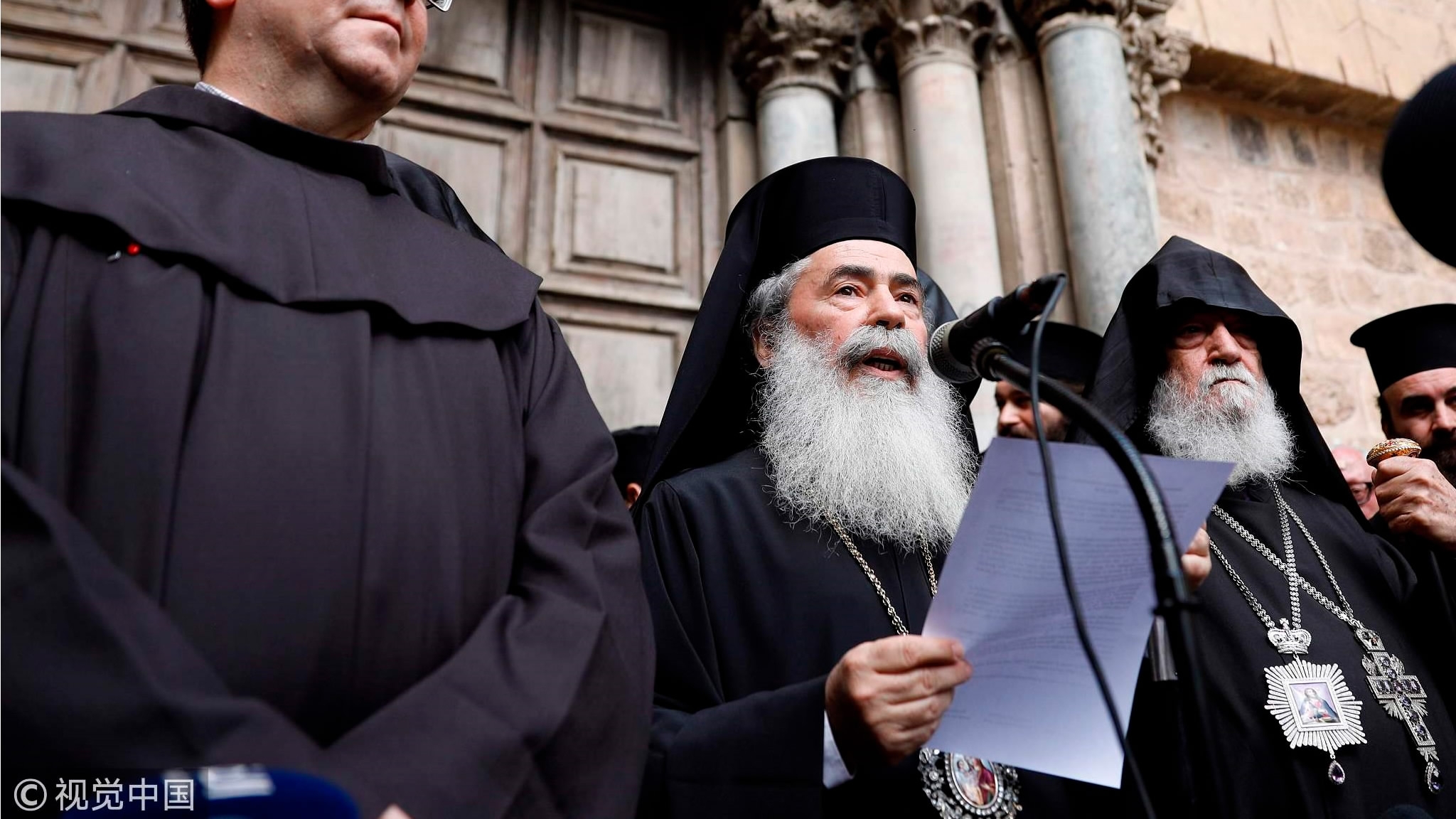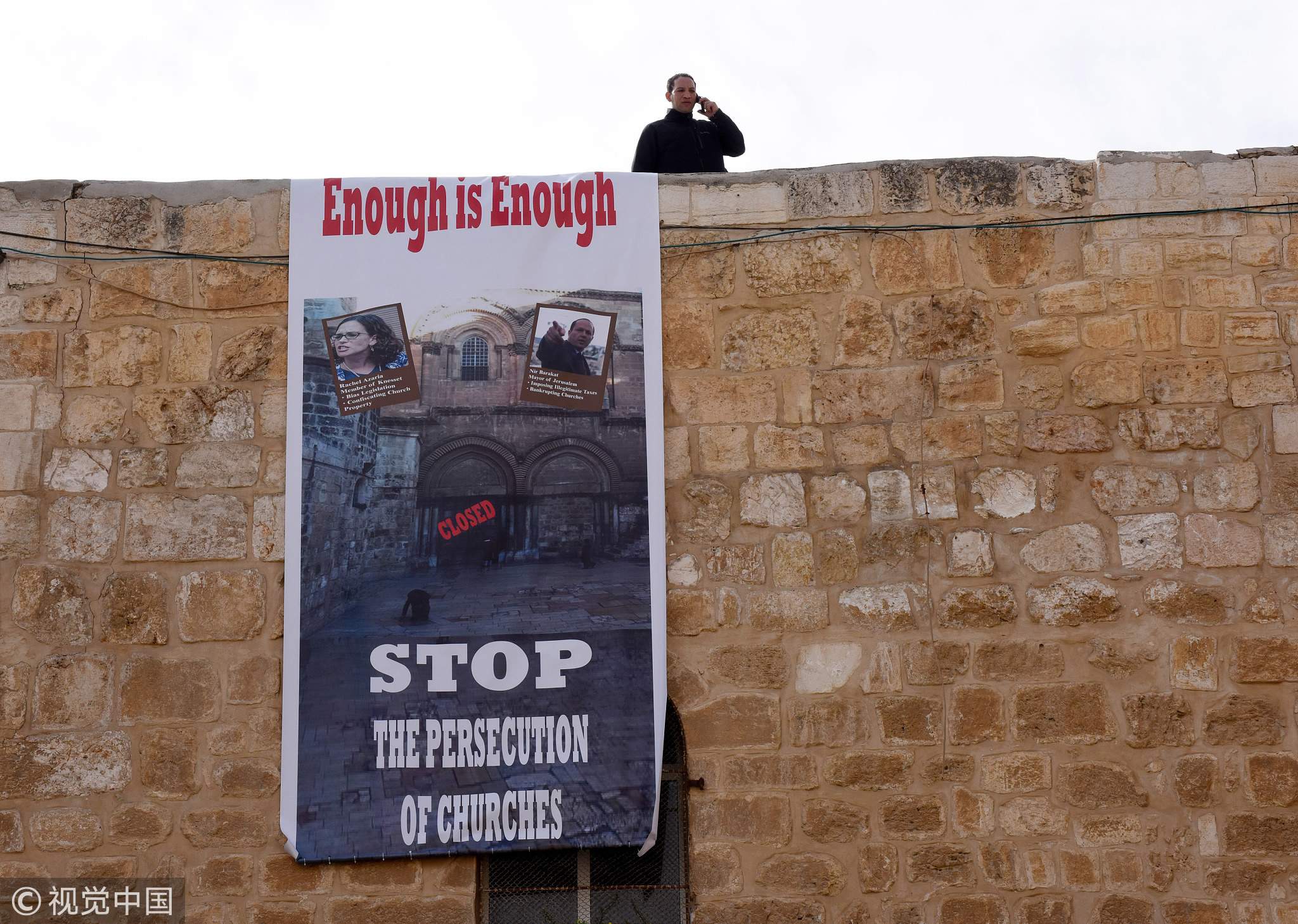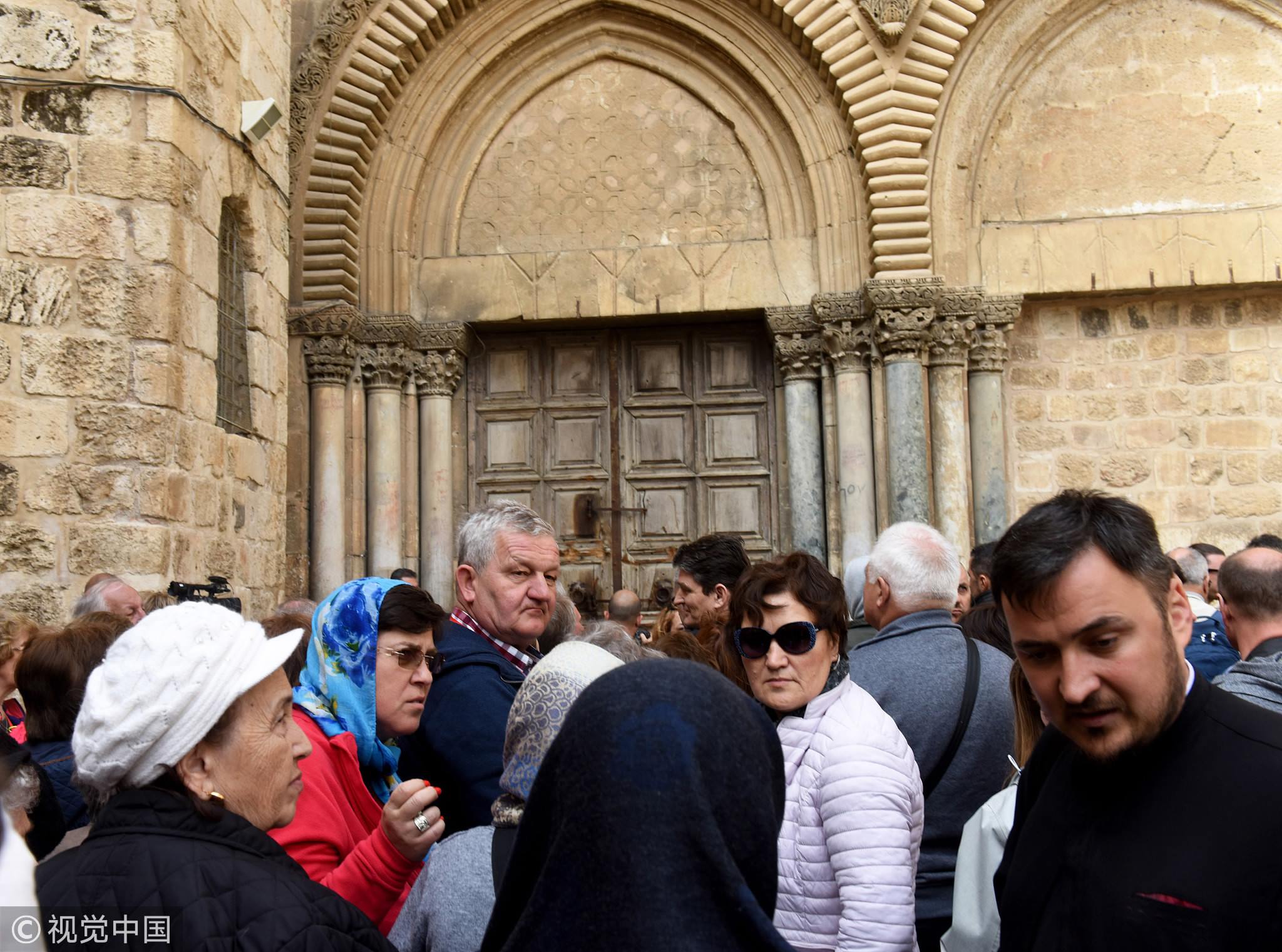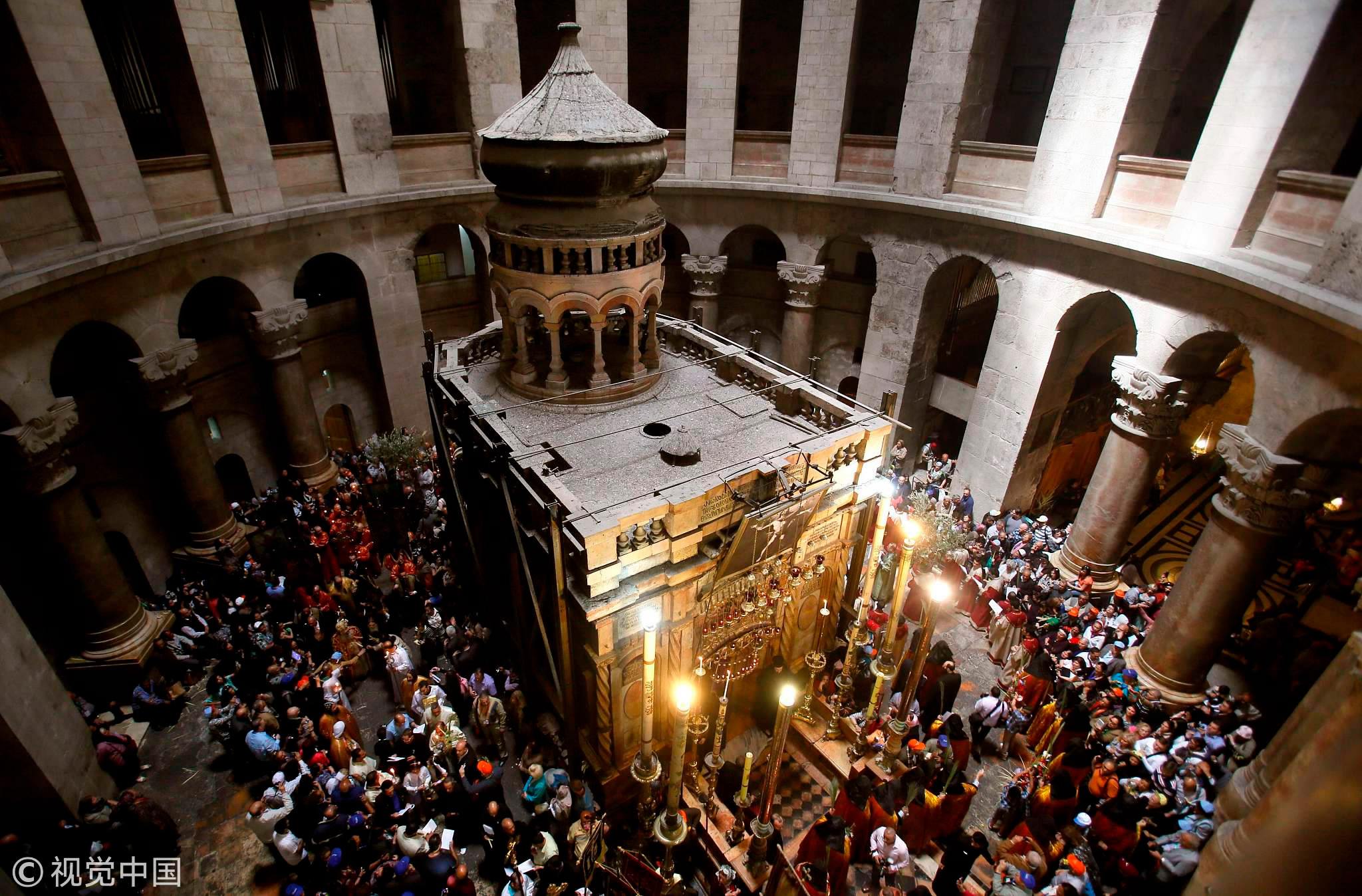
World
11:44, 26-Feb-2018
Jerusalem's Church of Holy Sepulchre shuts in tax, land protest
CGTN

Church leaders in Jerusalem shut on Sunday the Church of the Holy Sepulchre – believed to be where Jesus was crucified and buried – to protest a new Israeli tax policy and proposed land expropriation law.
The rare move, which left tourists stranded outside one of the city’s most visited pilgrimage sites, came after the Jerusalem municipality recently cancelled a tax exemption granted to church-owned commercial properties in the city.
Christian leaders were also angered by a new legislation being considered by Israel's government that they say would allow church property to be expropriated.

A man stands beside a protest poster hung outside the locked doors of the Church of the Holy Sepulchre in Jerusalem's Old City, February 25, 2018. /VCG Photo
A man stands beside a protest poster hung outside the locked doors of the Church of the Holy Sepulchre in Jerusalem's Old City, February 25, 2018. /VCG Photo
"As a measure of protest, we decided to take this unprecedented step of closure of the Church of the Holy Sepulchre," Greek Orthodox, Armenian Apostolic and Catholic leaders – who share custody of the church – said in a statement.
Recent Israeli measures seemed to be "an attempt to weaken the Christian presence in Jerusalem," they said.
The debate over the expropriation bill was delayed by a week after the move.
The church was to remain closed until further notice.
Confused tourists stood in front of its closed doors after the announcement, as tour guides sought to explain why they could not visit.
Jerusalem Mayor Nir Barkat said in a statement that the city was due 650 million shekels (186 million US dollars) in uncollected taxes on church properties, which he called "illegal and irrational".

Tourists wait outside the locked doors of the Church of the Holy Sepulchre in Jerusalem's Old City, after Christian leaders closed it, February 25, 2018. /VCG Photo
Tourists wait outside the locked doors of the Church of the Holy Sepulchre in Jerusalem's Old City, after Christian leaders closed it, February 25, 2018. /VCG Photo
Barkat stressed the Church of the Holy Sepulchre and all other churches were exempt from the taxes and would remain so, with the changes only affecting establishments like "hotels, halls and businesses" owned by the churches.
The churches, which are major landowners in the holy city, however say the measure jeopardizes their ability to conduct their work, which includes not only religious but also social services to those in need.
According to Israeli media, the foreign ministry has been critical of Jerusalem mayor's decision on church taxation.
Officials have said the move is harmful to a decades-long status quo.
Greek Orthodox Patriarch Theophilos III on Sunday said: “The systematic campaign of abuse against Churches and Christians reaches now its peak as a discriminatory and racist bill that targets solely the properties of the Christian community in the Holy Land is being promoted.”
"This reminds us all of laws of a similar nature which were enacted against the Jews during dark periods in Europe," he added.

April 13, 2014: The interior of the Church of the Holy Sepulchre during the Palm Sunday Easter procession in Jerusalem's Old City. /VCG Photo
April 13, 2014: The interior of the Church of the Holy Sepulchre during the Palm Sunday Easter procession in Jerusalem's Old City. /VCG Photo
The decision to close the church is extremely rare.
In 1990, Christian sites including the Holy Sepulchre were closed for a day to protest the installation of Jewish settlers near the church, located in Israeli-annexed east Jerusalem.
Christian sites were shut for two days in 1999 to protest the planned construction of a mosque near Nazareth's Church of the Annunciation, where tradition holds the Angel Gabriel announced to Mary she was to become the mother of Jesus.
7129km
Source(s): AFP
,Reuters

SITEMAP
Copyright © 2018 CGTN. Beijing ICP prepared NO.16065310-3
Copyright © 2018 CGTN. Beijing ICP prepared NO.16065310-3